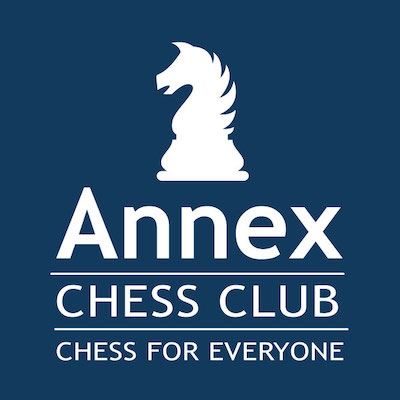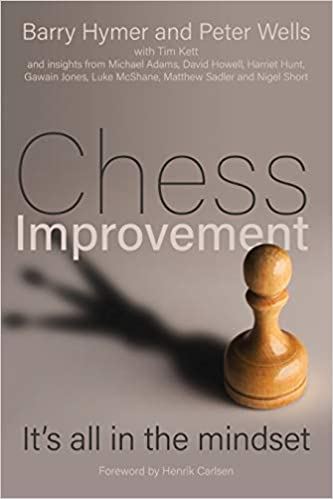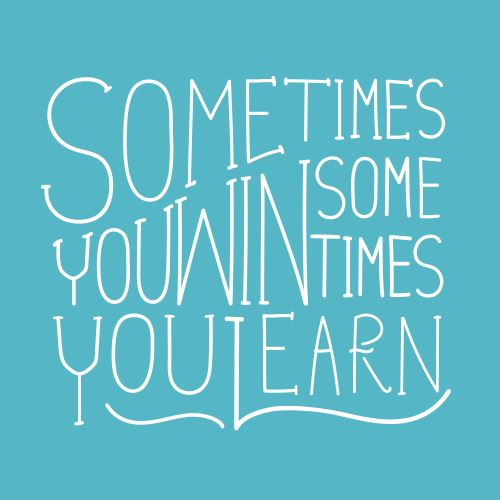ANNEX CHESS CLUBChess For Everyone! |
| Chess Improvement – It’s all in the mindsetIn 2020, an important chess-improvement book—written by Barry Hymer (a psychology professor)and Peter Wells (a Grandmaster and FIDE Senior trainer) and published by Crown House Publishing—was released. The book was called “Chess Improvement – It’s all in the mindset” and it explains how players can improve their chess by adopting a growth mindset. The book came out in December 2020 and was the subject of great attention at the 2020 London Chess Conference. It has great insight from significant chess players including Nigel Short and Michael Adams, and the Foreward was written by Henrik Carlsen, father of world chess champion, Magnus Carlsen. Here’s a link to a Youtube video where Barry Hymer introduces Chess Improvement – It’s all in the mindset. Growth Mindset – Background Let’s examine some of the background information on growth mindset. Mindset has been studied for over 40 years but there were two key breakthroughs with respect to growth mindset (in this writer’s opinion) that should be noted. In 2006, “A Theory of Growth Mindset” was published by researcher Carol Dweck. Dweck saw that as children’s minds develop, they generally possess greater tendencies towards having either a ‘fixed mindset’ or a ‘growth mindset.’ According to Carol Dweck and other researchers, those that have a fixed mindset see their abilities as a fixed trait and they will often give up in the face of stress or a challenge. Others who have a growth mindset see their abilities as something to develop and they will continue to pursue a challenge until resolved. Mindsets emerge during early years but they’re not immutable. Children respond to their situations. If they’re praised for their effort and the strategies they’re using, they’re more likely to want to learn and try harder. If they’re praised for their intelligence, they often make less progress. Here’s a link to a 2014 Youtube video Dweck made, called “Developing a Growth Mindset.” Here’s also an informative article about Carol Dweck called “A Summary of Growth and Fixed Mindsets.“ In 2010, researcher Ellen Galinsky published her book “Mind in the Making–The Seven Essential Life Skills Every Child Needs.” In it, Galinsky points out that an important life skill—Taking on Challenges—is often underestimated. Taking on challenges essentially means developing a growth mindset—i.e. looking for challenges, being resilient and demonstrating calmness. Interestingly, Galinsky also advises that children learn better when:
This is all relevant to the teaching of chess. Hymer-Wells Book – Some Major Takeaways“Chess Improvement – It’s all in the mindset” draws upon the work of Dweck and frames the concept of growth mindset in a chess-improvement setting. The book is an important read for parents and chess coaches/teachers. It gives lots of good advice about how to motivate chess players, how to practice chess including the use of chess engines, how to cope with failure, and how to become better at using metacognitive self-regulation to improve at chess. Here are some important takeaways from this book:
Hymer-Wells hypothesize that … students of chess (both kids and adults) with growth mindsets tend to identify, process and correct errors in their chess games much more than students with fixed mindsets. This leads to better, more consistent results—and greater chess improvement. These students believe this is all quite logical and possible. However, students with fixed mindsets don’t believe this as much—they tend not to study their games (especially their losses) to the same extent, so they don’t improve as quickly or as much. The bottom line—parents, coaches and teachers of chess students should buy this book and read it cover-to-cover. So should most chess players. There is much useful wisdom to be learned about how growth mindset leads to chess improvement. Growth mindset is even explained using specific game references to illustrate what important information can be learned by players from their self-analysis/evaluation of games played. Here is Patzer’s Review of “Chess Improvement—It’s all in the mindset.“ Physiological Factors that Can Significantly Impact Your Game A subset of chess improvement is understanding the physiological factors that can impact our chess performance as human beings. Here is an interesting article from ChessBase that discusses these factors. This discussion also helps with understanding comparisons made between chess players and sports athletes. |



